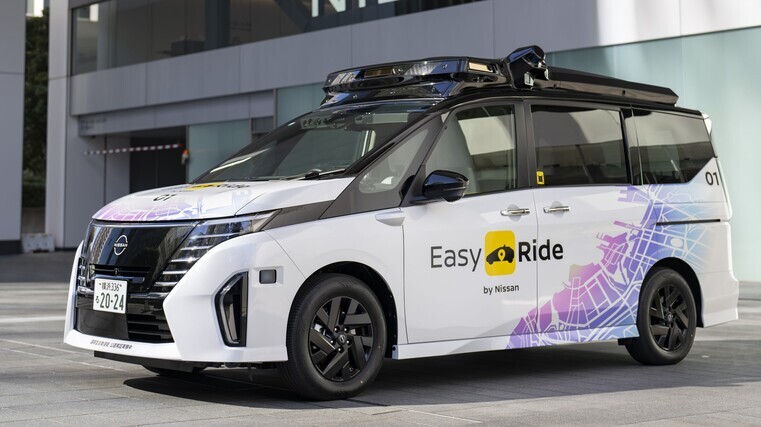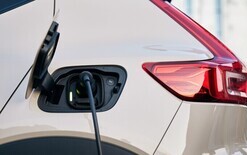Driverless technology passes test

Nissan Motor has revealed its latest autonomous-drive (AD) technology and hopes it will lead to providing mobility services to people in Japan in 2027.
It says for the first time in Japan, a test vehicle with no driver in the car has navigated a public road in a complex urban environment.
Nissan showcased its developments in Yokohama’s Minato Mirai area and says the proprietary technology is for a mobility service it plans to launch.
The latest test vehicles are based on the Serena, Japan’s top-selling minivan, and incorporate 14 cameras, nine radars and six LiDAR sensors.
The roof-mounted sensors offer increased detection by taking advantage of the height of the Serena and enabling more accurate detection of its surroundings, compared with earlier test vehicles.
Nissan adds the use of artificial intelligence has also enhanced recognition, behavioural prediction and judgement as well as control, delivering smooth operation in a variety of complex scenarios.
It says the Yokohama tests are a significant step to empower mobility by resolving transportation service challenges faced by Japanese communities, such as driver shortages resulting from an ageing population.
The carmaker aims to eventually provide a broad range of new services that enable freedom of mobility.
It is currently seeking to establish and verify the safety of its AD drive technology tailored to different traffic conditions worldwide.
This is being done through insights and technologies arising from its research in Japan, studies conducted by the Nissan Advanced Technology Centre in Silicon Valley, United States, and participation in an autonomous-driving project in the UK.
Since 2017, Nissan has been demonstrating and testing AD technology. It is planning service demonstration tests involving about 20 vehicles in Yokohama over the coming years.
Leveraging the test results, in fiscal year 2027 Nissan aims to provide autonomous driving mobility services, in collaboration with municipalities and transportation operators, with remote monitoring.
The initiative will be promoted in close co-operation with the Japanese government and Yokohama City.





